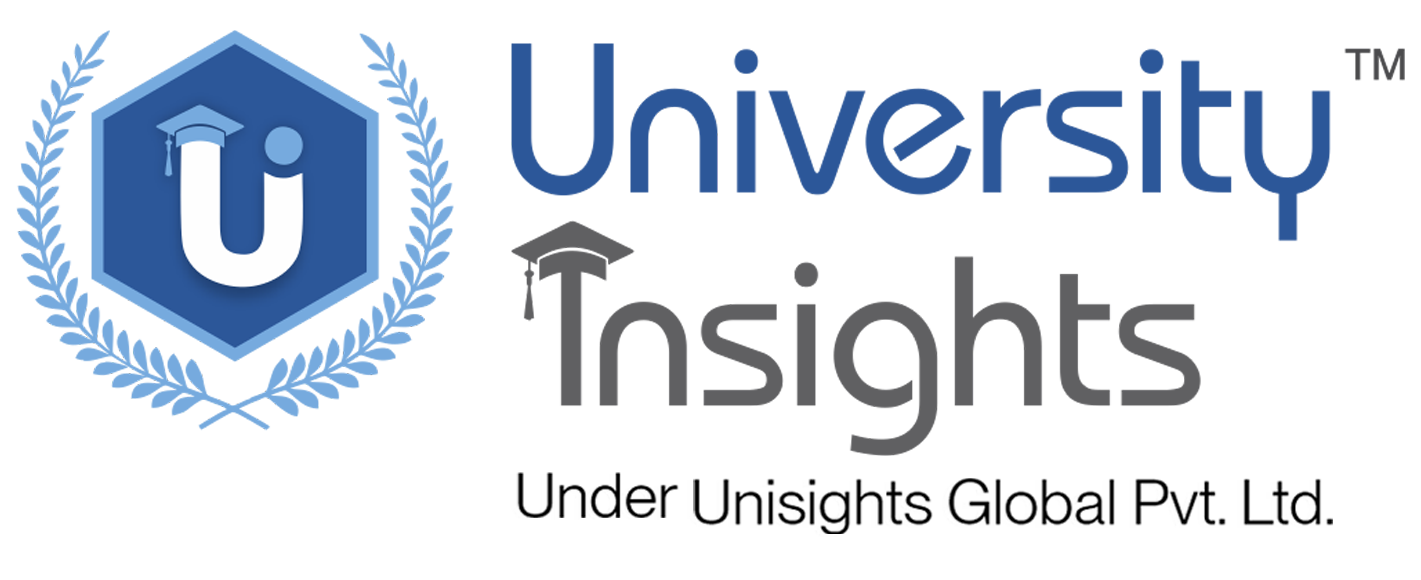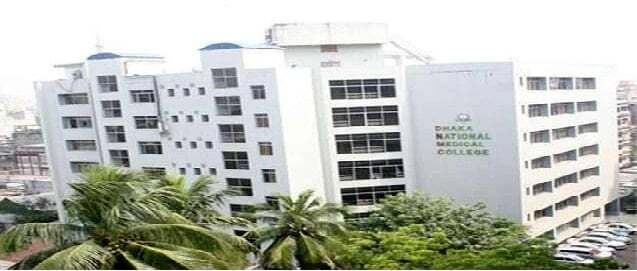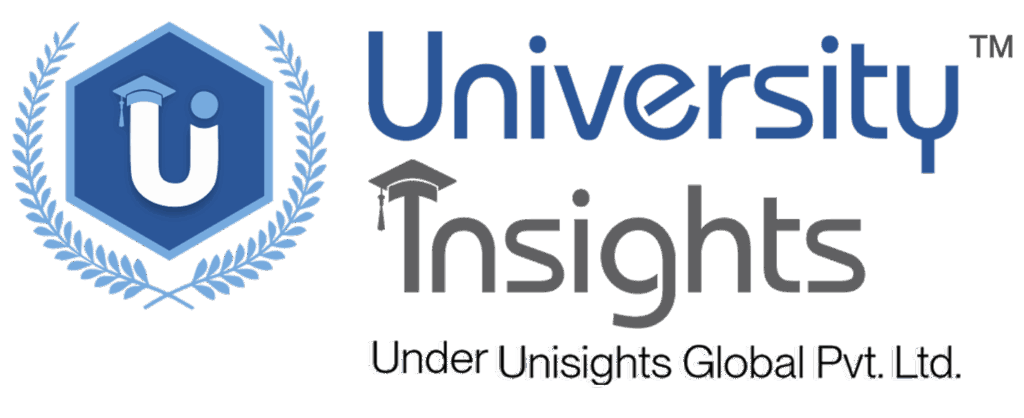Study MBBS in Korea for Indian Students to study in South Korea
MBBS in Korea is gaining attention among Indian students looking to pursue MBBS abroad in a country known for its advanced medical technology, strong healthcare infrastructure, and rising global academic reputation. With world-class universities, research-driven programs, and English-medium instruction available in select institutions, MBBS in Korea for Indian Students is a high-quality, emerging option for those aiming for international medical careers. The MBBS in Korea fees are moderately high, ranging from ₹40 to ₹80 lakhs depending on the university, but the quality of education, research exposure, and post-graduate opportunities justify the investment. Leading universities like Seoul National University, Yonsei University, and Korea University College of Medicine offer competitive programs with opportunities for global clinical exposure and advanced specialization. Students benefit from cultural familiarity, scholarship opportunities, and safety in one of Asia’s most technologically advanced countries. This article covers everything you need to know, including Korea MBBS eligibility, admission process, fee structure, student visa requirements, and how University Insights can help Indian students secure admission to the top MBBS universities in South Korea for the 2025–26 session.
About South Korea
Cultural Insights and Geographical Overview of South Korea
The Republic of Korea (South Korea) occupies the southern half of the Korean Peninsula, sharing a border with North Korea. South Korea is renowned for its vibrant culture, rapid technological advancements, and economic success, making it an attractive destination for local and international students.
Key cultural elements include:
- Korean food: From kimchi to bibimbap, cuisine forms a significant part of daily life for both domestic and foreign students.
- Festivals and Traditions: South Korea offers many cultural events, such as the Chuseok harvest festival and the Seollal New Year celebrations, allowing students to immerse themselves in the country’s customs.
- Living and studying in South Korea: Students enjoy an engaging environment with access to modern amenities, a thriving arts scene, and unique pop culture, often described as the “K-wave” or Hallyu.
The Korean government actively supports education as part of its development strategy, which enhances the experience for students enrolled in its universities and colleges.
The Educational System to Study MBBS in Korea 2025
South Korea’s educational system offers some of the most robust and high-quality learning environments in Asia. Many universities in Korea are recognized for their global excellence, such as Yonsei University and Korea University, which attract students from all over the world. These institutions are part of a dynamic academic landscape, including both private universities and government-funded programs.
Key components include:
- Programs taught in English: Many Korean universities offer programs entirely in English, making the country an accessible study destination.
- Student visa to study in Korea: International students are required to apply for a visa, and universities require documents such as proof of academic qualifications, TOPIK results, and financial statements.
- Scholarship programs: South Korea offers several scholarships, including the Global Korea Scholarship, which covers tuition, living costs, and airfare for foreign students.
- Korean government scholarship: The government sponsors scholarships as part of its effort to attract more international students, providing opportunities for education across many fields.
Many South Korean universities require proficiency in the Korean language to ensure effective communication and integration into their academic environment. Some students may need to take the Test of Proficiency in Korean (TOPIK) to demonstrate their readiness for university-level study.
The study environment in South Korea offers a balance of academic rigor and cultural engagement. Students benefit from South Korea’s status as a study destination that blends modern infrastructure with rich traditions. Whether through scholarship opportunities for international students or programs geared toward foreign students, South Korea provides diverse study options to meet the needs of a global student body.
Want To Study in South Korea?
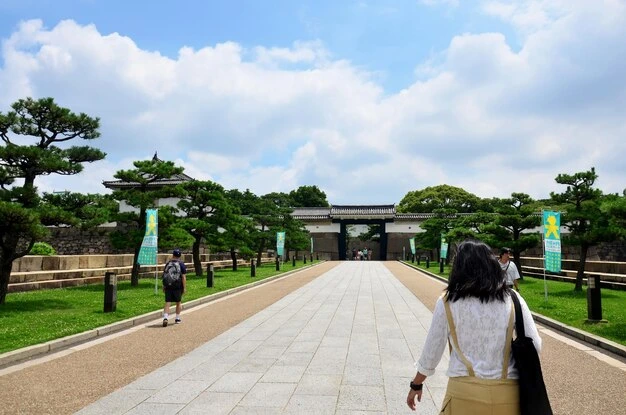
Why Study MBBS in South Korea 2025-26?
South Korea offers a compelling destination for international students pursuing higher education, thanks to its world-class universities, advanced healthcare system, and focus on innovation. South Korea’s vibrant academic landscape includes both universities and colleges offering MBBS programs, designed to attract students from across the globe. Domestic and international students benefit from a diverse and inclusive study environment, with numerous scholarships for studying in Korea that reduce the financial burden.
Best Universities in the South Korea for MBBS Programs
South Korea boasts several top institutions for medical education:
- Seoul National University (SNU): Recognized for both research and clinical expertise.
- Yonsei University: Known for its focus on international collaboration and modern facilities.
- Korea University: Offers one of the most comprehensive MBBS programs in South Korea.
- Ajou University and Chonnam National University: Popular study destinations due to their specialized medical programs.
These universities provide high-quality education through a mix of classroom learning and practical clinical training, ensuring that university students receive both theoretical knowledge and hands-on experience.
Advantages of Study Abroad in South Korea
- Innovative Healthcare System: South Korea’s healthcare facilities rank among the best globally, providing students with top-tier practical training.
- Programs for International Students: Many South Korean universities offer programs taught in English, catering to foreign students.
- Affordable Tuition and Living Costs: South Korea offers a competitive cost of education compared to Western countries, making it a feasible destination for international students.
- Cultural Experience: Living and studying in South Korea provides an opportunity to explore Korean culture, history, and cuisine.
Student Life in Korea for International Students
- Schools in South Korea provide ample facilities to support student life, including dormitories, sports complexes, and cultural clubs.
- Korean students often engage in academic collaborations with international students, promoting cross-cultural exchange.
- Popular study options include campus festivals, study tours, and volunteering opportunities, which enrich the student experience.
South Korea offers a well-rounded educational experience with academic rigor balanced by vibrant student life, where local and international students participate in various activities and form lifelong friendships.
Scholarships to Study in the South Korea for International Students
- Global Korea Scholarship (GKS): This program covers tuition, airfare, and a monthly stipend for students pursuing higher education in Korea.
- University-based scholarships: Many universities, such as Yonsei University and Korea University, provide scholarships specifically for international students.
- Korean government scholarship programs: These scholarships are aimed at encouraging students to apply for higher education in Korea and often include health insurance and living allowances.
Scholarship opportunities are available at all levels of education, making South Korea an accessible study destination for many international students.
Requirements to Study in the South Korea for Indian Students
Indian students want to study in South Korea must meet several criteria:
- Academic Records: A high school diploma or equivalent is required for undergraduate programs like MBBS.
- Language Proficiency: While some programs are taught in English, many universities require TOPIK (Test of Proficiency in Korean) scores.
- Visa Application: Students need to apply for a student visa to study in South Korea, which includes submission of academic records, financial statements, and a letter of acceptance from a university of your choice.
- Additional Documentation: A personal statement and letters of recommendation are often part of the application process.
Want To Study in South Korea?
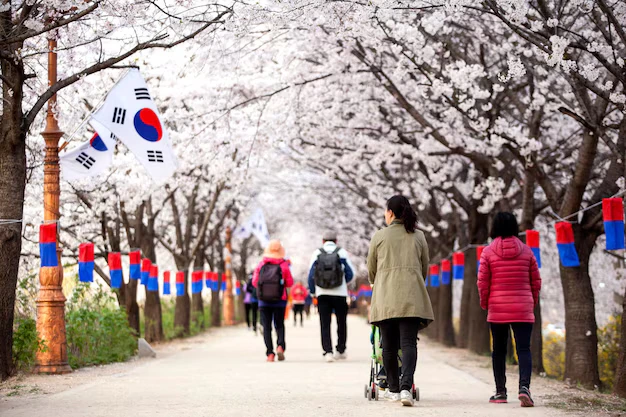
Study MBBS in Korea for Indian Students 2025-26
Study in South Korea for Indian Students: Admissions Overview
Indian students want to study MBBS in South Korea due to the country’s advanced medical education and global reputation. South Korea offers higher education that blends theory and practice through top universities and modern healthcare facilities. Indian applicants apply to study in various universities and colleges, selecting from programs taught in English or those requiring Korean language support.
To pursue MBBS, students must meet academic qualifications, which typically include high school completion with good grades in subjects like Biology, Chemistry, and Physics. Students 2023 need to apply directly to the university of your choice or through international programs. South Korean universities follow competitive selection procedures, including entrance exams and personal interviews. Admission decisions are based on academic merit, interview performance, and language proficiency.
Seoul: A Hub for Top Courses and Universities
Seoul serves as a prominent center for popular study programs in South Korea. It houses some of South Korea’s first and most prestigious institutions, such as:
- Seoul National University: Known for medicine and research excellence.
- Yonsei University: Offers a strong international student program with courses taught in English.
- Korea University: Among the leading universities for medical studies.
Seoul provides a rich cultural and educational environment, making it an attractive destination among international students and ensuring vibrant student life. University students in Seoul also benefit from access to professional networks, advanced medical facilities, and career opportunities.
Best Universities in South Korea for Indian Students
- Yonsei University: Known for having a global outlook and collaboration with foreign institutions.
- Korea University: A top choice for domestic and international students, offering scholarships and modern facilities.
- Ajou University and Chonnam National University: Well-regarded for healthcare-related studies, including MBBS.
These schools in South Korea are recognized for offering international programs in medicine. Indian students apply to study in these institutions due to their affordable tuition, research opportunities, and scholarships for studying in Korea.
Korean Language Support for International Students
While some programs are available taught in English, most Korean universities require students to demonstrate proficiency in Korean. The Test of Proficiency in Korean (TOPIK) is often mandatory for those enrolling in Korean-taught programs. However, many universities offer Korean language support through intensive courses, helping foreign students adapt to the curriculum and daily life.
Korean universities also provide orientation programs and support services to ensure international students feel at home while living and studying in South Korea. This environment promotes interaction between domestic and international students, helping Indian students integrate smoothly into academic and social settings.
Want To Study in South Korea?
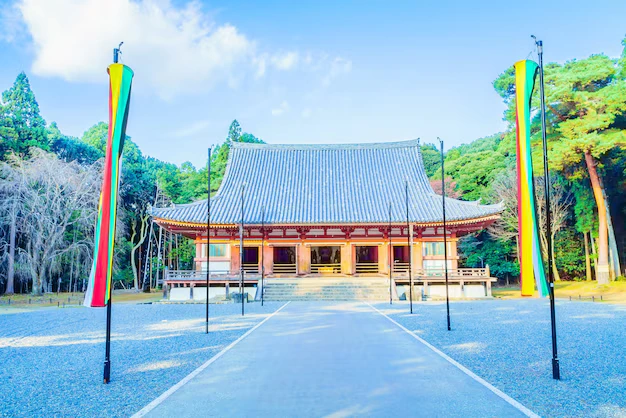
Admission Process for Studying MBBS in Korea 2025-26
Eligibility Criteria and Requirements to Study in South Korea
Korea are usually strict in their eligibility criteria for MBBS programs to maintain high educational standards. International students may need to meet several conditions, including:
- Academic Requirements: Completion of high school with strong grades in science subjects such as Biology, Chemistry, and Physics.
- Language Proficiency: Some universities require English language proficiency through IELTS or TOEFL, especially for programs taught in English. Others demand Korean language proficiency through the Test of Proficiency in Korean (TOPIK), as Korea shares its native language across most medical curricula.
- Entrance Exams and Interviews: Universities often conduct entrance tests, followed by interviews to assess the applicant’s knowledge and motivation.
- Additional Documentation: A letter of recommendation, a personal statement, and academic transcripts are standard requirements
Study in South Korea Admission Process for International Students
International students must apply to study in South Korean universities by adhering to the following steps:
- Research Programs: Choose the right university based on specialization and language requirements.
- Application Submission: Complete the online application on the university’s portal, including the required documents.
- Entrance Exams and Interviews: Applicants may need to take exams set by the university and participate in an interview.
- Admission Decisions: Universities release admission results typically by March or April for the fall intake.
Korea please requires that applicants submit all documents by specific deadlines, which can vary between universities. Applications for fall intake typically close by June, while spring intake applications end in November.
South Korea Student Visa Requirements
To study in South Korea, students must obtain a D-2 student visa. The requirements for a student visa include:
- Letter of Admission: Issued by the university confirming enrollment.
- Proof of Financial Capacity: Bank statements showing funds to cover tuition and living expenses.
- Academic Records: Copies of high school transcripts and certificates.
- TOPIK or English Proficiency Scores (if applicable).
- Passport and Photos: A valid passport and recent passport-sized photographs.
South Korea Student Visa Application and Fees
Students must apply for a visa through the Korean embassy or consulate in their home country.
- Processing Time: It takes 2-4 weeks for visa processing.
- Visa Fees: These fees depend on the student’s nationality and duration of stay, ranging from USD 50 to 80.
- Renewals: If students extend their study period, they can renew the visa by submitting updated financial proof and university enrollment certificates.
Korea are usually prompt with visa processing, provided all documents are accurate. However, students should apply well in advance to avoid delays, as South Korea may require additional time during peak admissions.
Want To Study in South Korea?

Fee Structure and Costs to Study MBBS in Korea 2025-26
Tuition Fees for MBBS Programs in South Korea
Tuition fees for MBBS programs in South Korea vary significantly based on whether the institution is public or private:
- Public Universities: Tuition ranges between $10,000 to $20,000 (INR 8.5 to 17 lakh) per year.
- Private Universities: Fees are higher, typically between $20,000 to $30,000 (INR 17 to 25.5 lakh) per year.
Top medical universities such as Seoul National University, Korea University, and Yonsei University offer high-quality programs, with some courses available in English to attract international students.
Other Costs to Study in South Korea: Financial Planning
In addition to tuition, international students need to budget for living and miscellaneous costs:
- Accommodation: $5,000 to $10,000 per year (INR 4.25 to 8.5 lakh), depending on whether students opt for on-campus dormitories or private rentals.
- Food and Groceries: Around $3,000 to $6,000 annually (INR 2.5 to 5 lakh).
- Transport and Miscellaneous Expenses: Transportation averages $500 to $1,000 (INR 42,500 to 85,000) per year, with additional costs for books and supplies.
Effective financial planning involves considering health insurance, part-time work opportunities, and budget-friendly accommodation, particularly in cities like Seoul, where living expenses can be higher.
South Korea Student Visa Fees for International Students
International students applying for a D-2 visa (student visa) must pay:
- Visa Application Fees: INR 5,000 to 7,500 (around $60 to $90), depending on nationality and processing time.
- Financial Proof Requirement: Applicants must demonstrate access to a minimum of INR 17 lakh ($20,000) in funds to cover tuition and living costs. Students may also need to submit receipts confirming payment of the first semester’s tuition fees.
The visa allows students to work part-time for up to 20 hours per week during semesters and full-time during holidays, helping them manage living costs while studying.
Scholarships to Study in South Korea for Indian Students
There are several scholarships for studying in Korea that help reduce financial burdens:
- Global Korea Scholarship (GKS): A government-funded scholarship covering airfare, tuition fees, and living expenses.
- University Scholarships: Many South Korean universities offer scholarships that cover 30-100% of tuition fees based on academic merit and financial need.
- Program for International Students: These scholarships are often competitive but provide comprehensive support to students enrolled in MBBS programs.
Hidden Costs to Study MBBS in Korea
Students should also account for hidden expenses:
- Visa Renewal Fees: If studies extend beyond the initial visa period.
- Medical Checkups and Health Insurance: Some universities require regular health assessments.
- Language Courses: Non-Korean speakers may need to enroll in Korean language courses if their program includes subjects taught in Korean.
- Miscellaneous Charges: Application fees, electricity, and internet bills could add to the overall budget.
Planning ahead and exploring part-time work options, scholarships, and budgeting strategies can ensure that students manage these hidden costs effectively while pursuing their MBBS degree in South Korea.
Want To Study in South Korea?
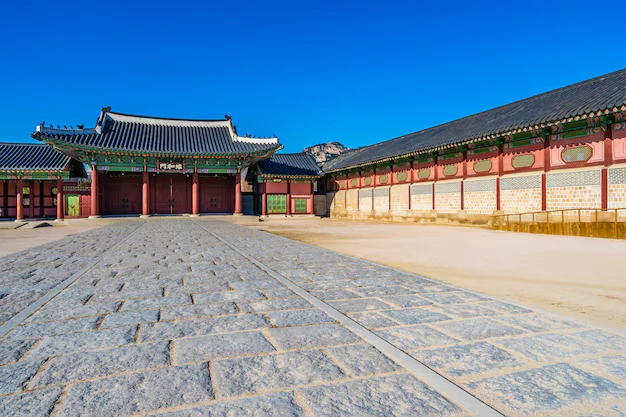
Top Medical Universities to Study MBBS in South Korea 2025-26
Seoul National University and Other Top Universities in South Korea
Seoul National University (SNU) is one of the most prestigious institutions in South Korea, consistently ranked among the top globally. SNU offers a comprehensive MBBS curriculum with world-class research facilities and clinical training in affiliated hospitals. The program emphasizes innovative teaching methodologies and practical exposure, ensuring students are well-prepared for medical practice.
Other leading universities offering MBBS in South Korea include:
- Yonsei University: Known for a strong focus on global medical education and international student programs.
- Korea University: Offers advanced medical programs and research opportunities, particularly for students focusing on clinical sciences.
- Ajou University and Chonnam National University: Attract international students with specialized courses and collaborative programs.
These universities ensure that both domestic and international students benefit from access to modern medical technologies, research opportunities, and comprehensive practical training.
Korea Advanced Institute of Science: Best University in South Korea
Though not traditionally a medical school, the Korea Advanced Institute of Science and Technology (KAIST) is considered one of the best in the country for science and technology. While KAIST does not offer a traditional MBBS, it plays a key role in medical technology and innovation, collaborating with universities and hospitals. These partnerships contribute to advancements in healthcare research, particularly in biotechnology, pharmaceuticals, and medical devices, enhancing the medical landscape in South Korea.
Want To Study in South Korea?
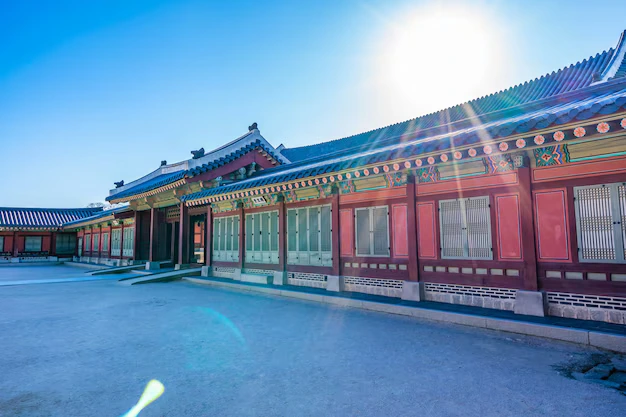
Advantages of Studying MBBS in South Korea 2025-26
Benefits of Study Abroad Programs in South Korea
- High-Quality Education: South Korea provides higher education on par with Western countries, offering advanced clinical practices and research-based curricula.
- Cultural Exposure and Networking: South Korea’s emphasis on collaboration ensures that students connect with peers, faculty, and professionals from diverse backgrounds.
- Global Recognition: A medical degree from a reputed South Korean institution opens doors to international opportunities, with qualifications recognized across multiple countries.
- Modern Infrastructure and Facilities: Medical universities in South Korea feature state-of-the-art laboratories, simulation centers, and teaching hospitals for practical learning.
Top Courses to Study in South Korea for International Students
Besides MBBS, other popular study fields for international students include:
- Biomedical Engineering: Strong focus at institutions like KAIST.
- Public Health: Offered as part of many MBBS curricula to foster holistic healthcare approaches.
- Medical Technology and Research: Collaboration between science-focused universities and medical schools enhances learning opportunities.
Scholarships to Study in South Korea for International Students
Several scholarship programs help international students manage the cost of education:
- Global Korea Scholarship (GKS): A government initiative covering tuition fees, living expenses, and airfare.
- University Scholarships: Many institutions offer merit-based scholarships covering 30-100% of tuition costs.
- Korean Government Scholarship Programs: Support specific research and academic pursuits for students enrolling in medical programs.
These scholarships are highly competitive but provide substantial financial support, making South Korea an affordable study destination.
South Korea Student Visa Process for MBBS Students
To pursue MBBS, students must apply for the D-2 visa:
- Required Documents:
- Certificate of Admission from a South Korean university.
- Academic transcripts, proof of language proficiency, and financial statements showing a minimum balance of $20,000 (INR 17 lakh).
- Completed visa application and passport-sized photos.
- Processing Time: Typically takes 2-4 weeks.
- Part-time Work: Visa holders can work up to 20 hours per week during semesters and full-time during breaks.
Planning the visa application in advance ensures students can meet deadlines and smoothly transition into their academic journey.
Want To Study in South Korea?
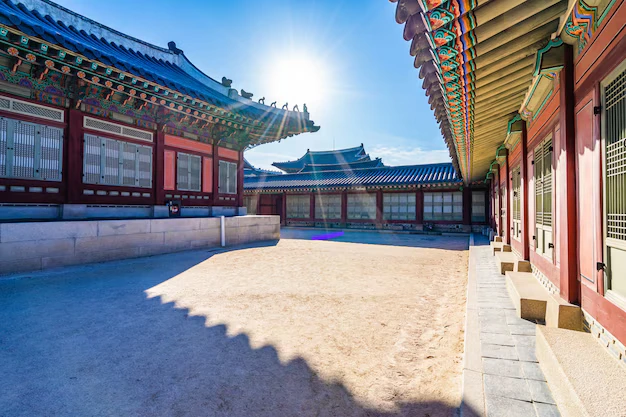
Course Details and Curriculum of Studying MBBS in Korea 2025-26
Degree Programs in South Korea: MBBS Curriculum Overview
The MBBS program in South Korea is a 6-year degree divided into distinct phases:
- Pre-Medical Phase (First 2 Years): Focuses on foundational sciences like Biology, Chemistry, and Physics, ensuring students have a solid academic background. This phase also includes introductory courses in medical ethics and Korean public health.
- Pre-Clinical Phase (Years 3 and 4): Covers in-depth theoretical knowledge in subjects like Anatomy, Physiology, Pharmacology, and Pathology.
- Clinical Phase (Years 5 and 6): The final years consist of rotations in affiliated hospitals where students apply their knowledge in practical settings. Rotations include Internal Medicine, Surgery, Pediatrics, and Psychiatry.
Research Facilities and Technology in Korean Universities
Korean universities are equipped with modern laboratories, simulation centers, and advanced medical equipment. South Korea emphasizes research, encouraging students to participate in projects related to medical technology, biotechnology, and pharmaceuticals. Some universities also collaborate with global institutions, providing opportunities for students to engage in cutting-edge research and publish their work.
- Simulation labs allow students to practice patient care in real-time scenarios.
- Research funding from both the Korean government and industry partners promotes innovative studies.
Academic Support Services in South Korea for MBBS Students
South Korean universities offer extensive academic support services for both domestic and international students:
- Mentorship Programs: Experienced faculty members guide students throughout their academic journey.
- Language Support: Korean language courses are provided for international students to ensure they can engage fully in clinical practice.
- Career Counseling and Networking: Universities facilitate student internships, licensing exam preparation, and provide career guidance.
- Student Exchange Programs: Partner universities across Asia and Europe offer exchange opportunities, giving students global exposure.
Want To Study in South Korea?

Studying MBBS in Korea Syllabus
Key Subjects in the MBBS Syllabus in South Korea
The MBBS curriculum covers essential medical disciplines through structured coursework:
- First Phase: Anatomy, Biochemistry, Physiology.
- Second Phase: Pathology, Microbiology, Pharmacology, and Community Medicine.
- Final Clinical Phase: Internal Medicine, Surgery, Obstetrics and Gynecology, Pediatrics, and Psychiatry.
In addition to traditional subjects, students are also exposed to public health and healthcare systems, with an emphasis on both domestic and international healthcare challenges.
MBBS Internship and Licensing Exams in South Korea
The MBBS program requires students to complete a clinical internship in their final year, where they gain practical experience through rotations across different medical departments.
- Licensing Exam: Graduates must pass the Korean Medical Licensing Examination (KMLE) to be eligible to practice in South Korea. This rigorous exam tests both theoretical knowledge and clinical competencies.
- Students may also choose to pursue postgraduate studies, with additional examinations required for specialization in fields like surgery or cardiology.
Ethical Practices and Sustainability in Korean Medical Education
South Korean medical education emphasizes ethical practices and sustainability through various initiatives:
- Medical Ethics: Incorporated from the pre-medical phase to ensure students understand the importance of patient confidentiality, informed consent, and professionalism.
- Sustainability in Healthcare: Many universities focus on environmental sustainability, encouraging students to consider the environmental impact of healthcare practices and promote green initiatives within hospitals.
- Community Health Initiatives: Students participate in programs that address public health issues, ensuring that they understand healthcare from both local and global perspectives.
Want To Study in South Korea?
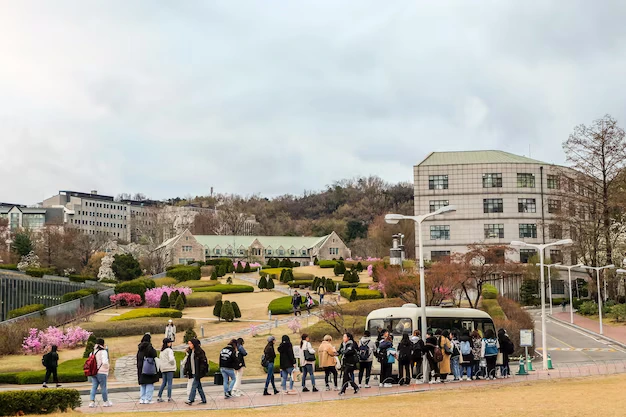
Opportunities and Career Prospects After Studying MBBS in Korea 2025-26
Career and Job Prospects for International Students in South Korea
International students completing an MBBS in South Korea gain access to several career paths:
- Residency Programs: Graduates can apply for residency positions in South Korean hospitals, which offer competitive training in specialized fields such as cardiology, neurology, and surgery.
- Medical Practice in South Korea: After passing the Korean Medical Licensing Examination (KMLE), students become eligible to practice in the country. Some graduates also find roles in research and academia.
- Work Permits and Part-Time Jobs: MBBS graduates can transition to full-time jobs after completing their degree, with the South Korean government offering visa pathways to skilled workers.
- Global Recognition: South Korean universities are increasingly recognized globally, with graduates finding career opportunities in neighboring Asian countries and beyond.
Higher Studies and Licensing Requirements in South Korea
- Specialization Programs: After earning their MBBS, students may pursue master’s or doctoral studies in areas like public health, healthcare management, or specialized medical fields.
- Licensing Requirements: Passing the KMLE is mandatory to practice in South Korea. The exam involves both written tests and clinical assessments to ensure proficiency.
- Postgraduate Fellowships and Research Opportunities: Graduates may engage in clinical research or pursue fellowships in medical technology, supported by South Korean universities and government institutions.
Alumni Networks for MBBS Graduates from South Korea
South Korea offers robust alumni networks that connect graduates to career opportunities and professional development.
- University Alumni Associations: Graduates benefit from active alumni networks, such as those at Yonsei University and Seoul National University, which facilitate job placements and collaborations.
- Mentorship Programs: Alumni often mentor current students, providing guidance on licensing exams and career pathways.
- International Alumni Programs: Many universities maintain networks that help graduates find jobs outside South Korea, fostering a global community of medical professionals.
Want To Study in South Korea?

Studying MBBS in Korea vs MBBS in India 2025-26
Recognition of MBBS Degree from Korean Universities
- Global Accreditation: Several South Korean medical universities are recognized by global organizations, including the World Health Organization (WHO) and the Medical Council of India (MCI). Graduates from these universities can apply for licensure examinations like the National Exit Test (NExT) in India.
- Language Requirement: While MBBS programs in South Korea offer some courses in English, proficiency in Korean is often required for clinical practice, which could be a barrier for some international students.
Post-Graduation Opportunities: South Korea vs India
- South Korea: Offers specialized residency programs, research opportunities, and fellowships. The healthcare sector in South Korea emphasizes high-quality patient care and advanced medical technology, making it an attractive option for specialization.
- India: Graduates returning to India need to clear the NExT exam for licensure. However, Indian healthcare offers a broader range of experiences due to its diverse patient demographics and public health challenges.
Cost Comparison: MBBS in South Korea vs India
| Expense Category | South Korea | India |
|---|---|---|
| Tuition Fees | $10,000 – $30,000/year | ₹10-15 lakh total |
| Accommodation | $5,000 – $10,000/year | ₹50,000 – 1.5 lakh/year |
| Food and Transport | $3,000 – $6,000/year | ₹50,000 – ₹1 lakh/year |
| Licensing Exam and Fees | KMLE (~₹50,000) | NExT (~₹25,000) |
| Scholarships Available | Yes (Global Korea Scholarship) | Limited |
While South Korea’s MBBS programs may have higher tuition fees than Indian medical schools, the advanced infrastructure, international exposure, and scholarship opportunities make it a competitive study destination for students seeking high-quality medical education.
Want To Study in South Korea?

Studying MBBS in Korea vs MBBS in Other Countries 2025-26
Why Choose South Korea Over Other Countries for MBBS Studies?
South Korea offers a unique blend of modern medical education and rich cultural exposure. Here are key reasons why students prefer South Korea for MBBS:
- Advanced Medical Technology: South Korea is renowned for its innovative healthcare sector, providing students access to cutting-edge research and medical equipment.
- Globally Recognized Degree: MBBS degrees from top South Korean universities are increasingly accepted worldwide, enhancing career opportunities.
- Affordable Tuition with Scholarships: Compared to Western countries, South Korea provides scholarships for studying in Korea, making education more accessible for international students.
- Cultural Immersion: The experience of living and studying in Korea enriches students’ global perspective through cultural exchange and language learning.
Study Abroad Comparison: Korea vs Other Countries
| Parameter | South Korea | India | USA | UK |
|---|---|---|---|---|
| Program Duration | 6 years | 5.5 years | 8 years | 5-6 years |
| Annual Tuition Fees | $10,000 – $30,000 | ₹2-3 lakh | $40,000 – $60,000 | £30,000 – £50,000 |
| Medium of Instruction | English & Korean | English | English | English |
| Scholarships Availability | Yes (Global Korea Scholarship) | Limited | Available | Available |
| Clinical Exposure | Extensive with advanced tech | Varied | Extensive | Comprehensive |
| Post-graduation Pathways | Residency and licensing options | NEET for PG | USMLE | PLAB |
South Korea offers a competitive study environment with advanced medical infrastructure. Although the costs may seem higher than in India, they remain significantly lower compared to the USA or the UK. Additionally, Korean universities offer structured pathways for clinical training and research, providing students with valuable career-building experiences.
Want To Study in South Korea?

Scholarships and Financial Aids to Study MBBS in Korea 2025-26
Study in South Korea Scholarships for International Students
Several scholarships support domestic and international students pursuing MBBS:
- Global Korea Scholarship (GKS): Covers tuition, airfare, and living expenses, promoting international student mobility.
- University Scholarships: Many South Korean universities, such as Yonsei University and Korea University, offer merit-based scholarships covering 30-100% of tuition fees.
- Korean Government Scholarship Programs: These are awarded for academic excellence and research potential, encouraging students to apply from different countries.
Scholarships to Study in South Korea for Indian Students
Indian students can access specific scholarships aimed at fostering academic exchange:
- GKS and University-specific Scholarships: Available for both undergraduate and postgraduate students, offering partial or full tuition waivers.
- Program for International Students: Korean universities prioritize students from India and other countries for various scholarship programs, encouraging applications for higher education in medicine.
How to Apply for Scholarships and Financial Aid in South Korea
- Research Eligibility Criteria: Begin by reviewing university websites to identify available scholarships and their eligibility requirements.
- Prepare Required Documents: Most scholarship applications require transcripts, letters of recommendation, a personal statement, and financial documents.
- Application Deadlines: Applications for the Global Korea Scholarship and university-specific programs typically open several months before the semester start.
- Submit through University Portals: Scholarship applications are submitted online along with university applications, ensuring students are considered during the admission process.
South Korea offers an extensive range of scholarships, and students can reduce their overall education costs significantly by applying strategically and meeting deadlines.
Want To Study in South Korea?

MBBS Options for Indian Students Other Than Studying in Korea 2025
Popular Countries for MBBS Study Other Than South Korea
Several countries offer excellent alternatives for Indian students pursuing MBBS abroad, with varying admission requirements, costs, and educational quality:
- Russia: Known for affordable fees and MCI-recognized universities; programs often taught in English.
- Philippines: Offers a US-based curriculum, attracting Indian students for its clinical exposure and lower tuition costs.
- Bangladesh: Close to India culturally and geographically, with affordable fees and an education system similar to India.
- Uzbekistan and Kazakhstan: Emerging as low-cost destinations for MBBS, with increasing popularity among Indian students.
- China: Home to several globally ranked medical schools; however, proficiency in Mandarin is often required for clinical practice.
Pros and Cons of MBBS Programs Abroad
| Country | Pros | Cons |
|---|---|---|
| Russia | Affordable fees, English programs available | Harsh climate, cultural adaptation required |
| Philippines | US-based curriculum, high clinical exposure | Risk of licensing delays in India |
| Bangladesh | Similar education system, low travel costs | Limited infrastructure in some universities |
| China | Globally ranked universities, advanced facilities | Language barrier, expensive living costs |
| Kazakhstan | Affordable tuition, growing popularity | Quality varies across universities |
Want To Study in South Korea?

Living Cost While You Study MBBS in Korea 2025-26
Lifestyle and Student Life in South Korea for International Students
- Cultural Experience: South Korea offers a vibrant student life enriched with festivals, K-pop concerts, and traditional celebrations. Students also have access to excellent public transport, modern libraries, and sports complexes on campuses.
- Balance of Academics and Extracurriculars: Universities promote a balanced lifestyle through student clubs, volunteering opportunities, and cultural exchange programs for both domestic and international students.
Comparative Living Costs: South Korea vs Other Countries
| Category | South Korea | Russia | Philippines | China |
|---|---|---|---|---|
| Tuition Fees (Annual) | $10,000 – $30,000 | $3,500 – $8,000 | $4,500 – $7,000 | $5,000 – $10,000 |
| Accommodation | $5,000 – $10,000 | $2,000 – $4,000 | $1,500 – $3,000 | $3,500 – $6,000 |
| Food and Groceries | $3,000 – $6,000 | $1,500 – $2,500 | $2,000 – $3,000 | $2,500 – $4,000 |
| Miscellaneous | $2,000 – $4,000 | $1,000 – $2,000 | $1,500 – $2,500 | $2,000 – $3,500 |
While South Korea’s living expenses are higher than in countries like the Philippines and Russia, it provides advanced infrastructure, cultural experiences, and academic support services, making it a competitive study destination.
Language and Communication for International Students in Korea
- Korean Language Proficiency: Although many medical programs are offered in English, students must interact with patients in Korean during clinical practice. Universities provide Korean language courses to help international students adapt.
- Communication Support: Some universities offer bilingual support services, ensuring smooth communication for non-Korean speakers in both academic and social settings.
Support Services for International Students in South Korea
- Counseling and Mental Health Services: Universities prioritize student well-being by offering counseling centers and mental health support.
- International Offices: Dedicated teams help students manage visa renewals, academic planning, and internships.
- Career Support: Universities provide career counseling, networking opportunities, and guidance on applying for residencies or postgraduate programs.
These services foster a welcoming and inclusive environment for international students, helping them adjust to living and studying in South Korea.
Want To Study in South Korea?

Health and Safety While Studying MBBS in Korea
Healthcare Facilities and Insurance for International Students
South Korea offers advanced healthcare facilities with access to state-of-the-art hospitals and clinics. International students benefit from the following healthcare provisions:
- National Health Insurance (NHI): All international students must enroll in NHI, which covers a range of medical treatments, including doctor visits, hospital stays, and prescriptions. The monthly premium ranges from KRW 50,000 to 100,000 (around INR 3,200 to 6,500).
- University Health Centers: Most universities provide health services on campus, including basic medical consultations, vaccinations, and mental health support.
- Emergency Services: Students have access to 24/7 emergency services through hospitals and clinics across the country. Ambulance services are free of charge in case of emergencies.
Safety Tips and Pre-Departure Checklist for South Korea
Pre-Departure Checklist:
- Ensure that all required vaccinations are up to date.
- Prepare essential documents such as a valid passport, student visa, health insurance certificate, and university acceptance letter.
- Carry an international driving permit if you plan to drive in South Korea.
- Familiarize yourself with South Korean laws, culture, and basic Korean phrases to ease your transition
Safety Tips for Students:
- Emergency Contacts: Save local emergency numbers (112 for police, 119 for medical emergencies).
- Public Transportation Safety: Public transport in South Korea is reliable and safe, but students should avoid traveling alone late at night.
- Personal Safety: South Korea is generally very safe, but students should remain vigilant, especially in crowded areas.
- Natural Disaster Preparedness: South Korea experiences occasional typhoons; universities provide safety instructions to ensure students know how to respond.
Mental Health and Counseling Services for International Students
South Korean universities are committed to promoting mental well-being for domestic and international students:
- University Counseling Centers: These centers offer professional counseling services to address academic stress, cultural adjustment, and personal issues.
- Workshops and Peer Support Groups: Universities organize wellness programs, including meditation and stress management workshops, to support mental health.
- 24/7 Hotlines: Some universities provide helplines offering confidential support in multiple languages.
- Access to External Mental Health Services: In cases requiring long-term care, universities connect students with licensed psychologists and psychiatrists at affiliated hospitals.
Want To Study in South Korea?

Financial Planning to Study MBBS in Korea
Financial Aid and Scholarships for Indian Students
South Korea offers several scholarship programs that help Indian students manage tuition and living expenses during their MBBS studies. Here are some key options:
- Global Korea Scholarship (GKS): This government-funded scholarship covers full tuition, airfare, a monthly stipend, and health insurance, making it a highly competitive yet valuable option for international students.
- University-specific Scholarships: Many universities like Yonsei University and Korea University offer merit-based scholarships, covering 30-100% of tuition fees depending on academic performance.
- Korean Government Research and Merit Scholarships: These scholarships are provided to students pursuing research-based medical education and are ideal for those with strong academic backgrounds.
In addition, students can apply for external scholarships offered by private organizations and NGOs promoting higher education in South Korea.
Budgeting Tips for Students Studying in South Korea
Planning a budget is essential for students to manage their finances effectively during their stay in South Korea. Here are some practical budgeting strategies:
Categorize Expenses
- Tuition Fees: Plan for $10,000 to $30,000 annually, depending on the university (public or private).
- Accommodation: Expect to spend between $5,000 and $10,000 per year, with dormitories being more affordable than private rentals.
- Food and Groceries: Monthly costs range from $250 to $500 (INR 21,000 to 42,000).
- Miscellaneous Costs: Set aside $150 to $300 monthly for transportation, internet, and entertainment.
Explore Part-Time Work Opportunities
- On-Campus Jobs: South Korean universities allow students with a D-2 visa to work part-time on campus, helping to cover small expenses.
- Off-Campus Jobs: Students can also work off-campus for up to 20 hours per week during the semester, with full-time hours permitted during holidays
Reduce Living Costs
- Use Public Transportation: South Korea’s public transportation system is affordable and efficient. A transportation pass can save money on commutes.
- Opt for Student Discounts: Many cultural sites, gyms, and stores offer discounts for university students.
- Meal Planning: Cooking at home can reduce food costs significantly. Many student dormitories provide shared kitchens.
Track Expenses and Save Wisely
- Budgeting Apps: Use budgeting apps or spreadsheets to track daily expenses.
- Emergency Fund: Maintain a savings buffer for unforeseen expenses such as medical emergencies or visa renewals.
Want To Study in South Korea?

Frequently Asked Questions for Studying MBBS in South Korea 2025-26
What is the process to get a student visa to study MBBS in South Korea?
Students need to apply for a D-2 visa by submitting an acceptance letter from their university, financial proof, and academic records. The application is processed through the South Korean embassy or consulate in the student’s home country and typically takes 2-4 weeks.
Is it worth pursuing MBBS in South Korea in 2025?
Yes, South Korea offers higher education with advanced medical facilities and opportunities for clinical exposure. The programs include innovative teaching methods, preparing students for international medical careers.
What are the admission requirements for MBBS at Korea University?
Korea University requires international students to have completed high school with science subjects. Depending on the program, students may need to demonstrate proficiency in English (through IELTS/TOEFL) or Korean (through TOPIK). Entrance exams and interviews are also part of the selection process.
Is there a guide for international students applying to study abroad in Korea?
Most universities offer a guide for international students covering essential aspects such as visa procedures, accommodation, academic programs, and scholarships. Orientation programs are available to help students adapt to life in South Korea.
How many students are expected to study MBBS in Korea in 2023?
In 2023, South Korea continues to attract a growing number of international students pursuing MBBS, owing to its high-quality education and availability of scholarships.
What are the benefits of choosing to study abroad in Korea for MBBS?
Studying MBBS in South Korea provides students with advanced education, research opportunities, and exposure to state-of-the-art medical facilities. The country’s vibrant cultural life and safety standards also make it an attractive study destination.
What scholarships for studying in Korea are available for MBBS students?
Students can apply for the Global Korea Scholarship (GKS) and various university-based scholarships. These scholarships often cover tuition, living expenses, and airfare, reducing the financial burden on international students.
What are the best medical schools in South Korea for MBBS?
Some top schools in South Korea offering MBBS include Seoul National University, Yonsei University, and Korea University. These institutions are known for their comprehensive medical programs and global recognition.
How do students manage living expenses while studying MBBS in Korea?
Students on the D-2 visa are allowed to work part-time for up to 20 hours per week during semesters. Many students save costs by living in dormitories and using public transport.
What is the career scope after completing MBBS in South Korea?
Graduates can pursue residencies in South Korea or practice medicine internationally after meeting the licensing requirements. South Korean universities also maintain strong alumni networks, helping graduates secure jobs and pursue further education.
Quick Info
- Number of Universities
- Over 20 medical universities
- Recognition
- Recognized by WHO, NMC FAIMER
- Eligibility
- Minimum 50% marks in PCB (Physics, Chemistry, Biology) in class 12th for general category; 40% for reserved category
- Course Duration
- 5 + 1 year internship
- Total Average Tuition Fees
- Approximately ₹15,00,000 - ₹25,00,000 lacs
- NEET
- Yes, NEET qualification is mandatory
- Intake
- September and January
- Medium of Teaching
- English Medium of instruction
Admission Queries
Read the Experiences of Students after taking University Insight's Services
These stories are built on genuine student experiences with University Insights, showcasing how they have pursued their academic ambitions and realized their dreams of studying abroad. Take that bold step to start your own exceptional journey today! These accounts reflect true experiences of students who trusted University Insights to support their academic growth and global education goals. Step forward and embark on your extraordinary adventure.
Elena Shah
South Korea
Shreya
South Korea
Sophia
South Korea
Sophia
South Korea
Rahul
South Korea
Mariam
South Korea
Sabir Zamal
South Korea
Vikram
South Korea
Fatima
South Korea
Harsh
South Korea
Elena Shah
South Korea
Shreya
South Korea
Sophia
South Korea
Sophia
South Korea
Rahul
South Korea
Mariam
South Korea
Sabir Zamal
South Korea
Vikram
South Korea
Fatima
South Korea
Harsh
South Korea
Elena Shah
South Korea

